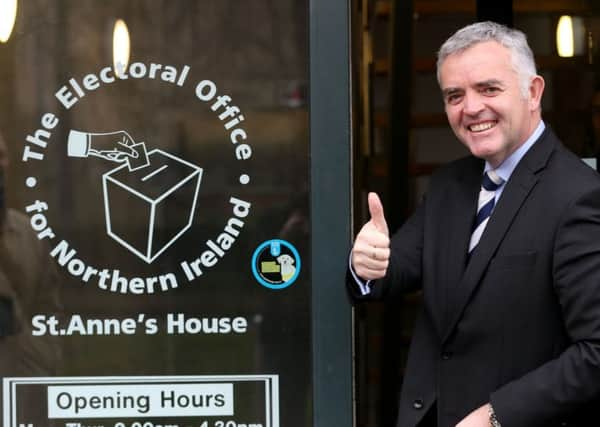Bell: '˜People left their houses to beg me to stand'


Jonathan Bell, who spoke out against his party in December over the Renewable Heat Incentive (RHI) scheme, told BBC Radio Ulster’s Nolan Show on Tuesday that people “came out of their houses to beg me to stand” in his erstwhile constituency.
Mr Bell was enterprise minister from May 2015 to May 2016, during the last stages of the RHI scheme before he shut it to new applications.
Advertisement
Hide AdAdvertisement
Hide AdThe catastrophically-mismanaged scheme had been set up by his predecessor Arlene Foster, and on December 16 Mr Bell broke party ranks to state that political pressure had been put on him to keep the scheme open.
Arlene Foster has said she has “nothing to hide” over the scheme, and a public inquiry into it was launched last month.
Shortly after speaking out, Mr Bell was suspended, and he told the Nolan Show he has had no notifications from the DUP since.
He added that he has not resigned from the party.
Nominations for candidates close on Wednesday, and standing as an independent was his “only option” said Mr Bell.
Advertisement
Hide AdAdvertisement
Hide Ad“That’s not the choice I would have made – it’s the choice my suspension has forced me into,” he said.
He said that he had not been asked to join the UUP, and would not have joined if he had been asked.
He also said he would still vote for other unionist candidates, “including my colleagues in the DUP”.
In the previous Assembly election, he had won a seat in Strangford with 3,393 first preference votes – 10.4% of the total.
Advertisement
Hide AdAdvertisement
Hide AdThis put him in fifth place among all six successful candidates, with the UUP’s Philip Smith coming a distant sixth with 1,694 first preference votes (5.2%).
Mr Bell’s nearest rival had been the Alliance Party’s Kellie Armstrong, who beat him with just over 100 more first preference votes.
With only five MLA seats in this election, rather than six, the contest in the seat (currently split between three DUP, two UUP and one Alliance) can be expected to be more fierce than the last election in May 2016.